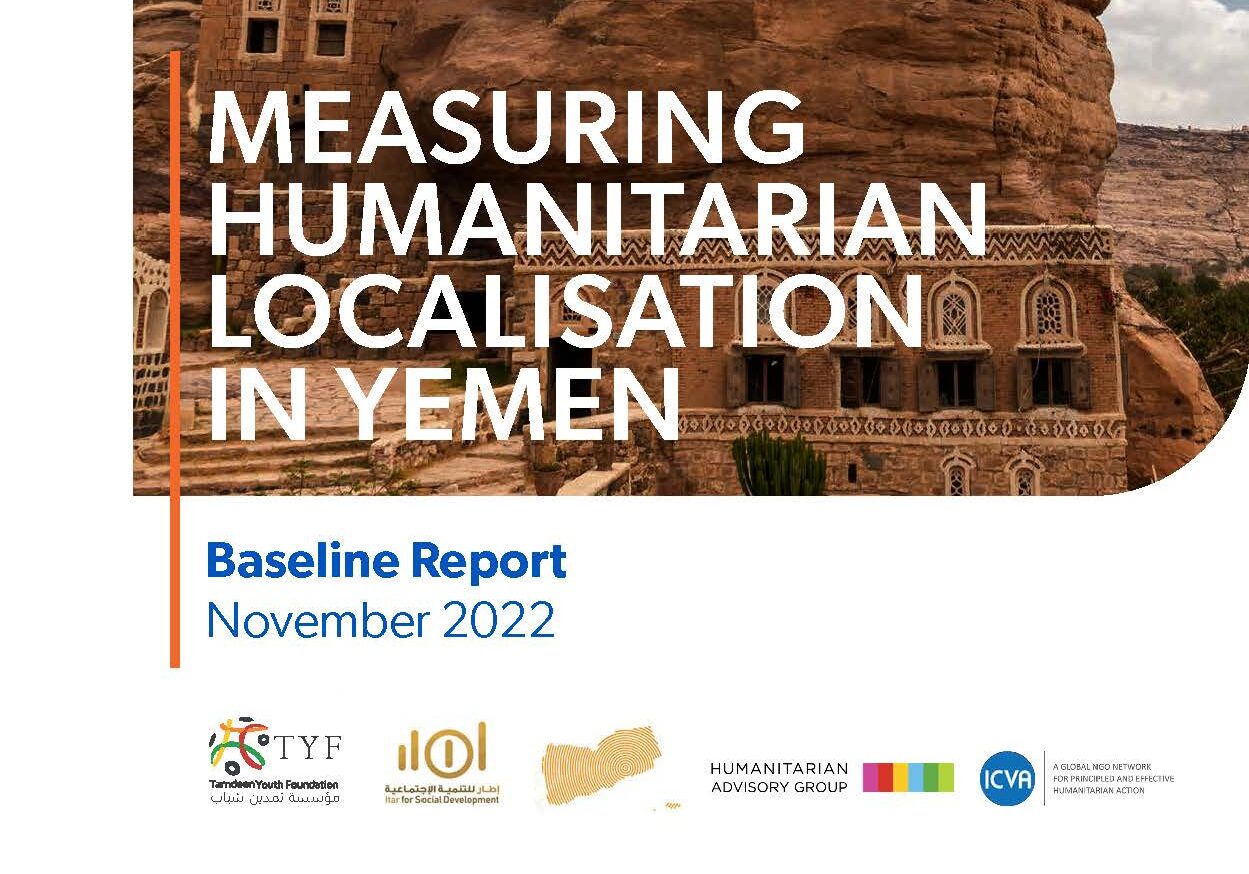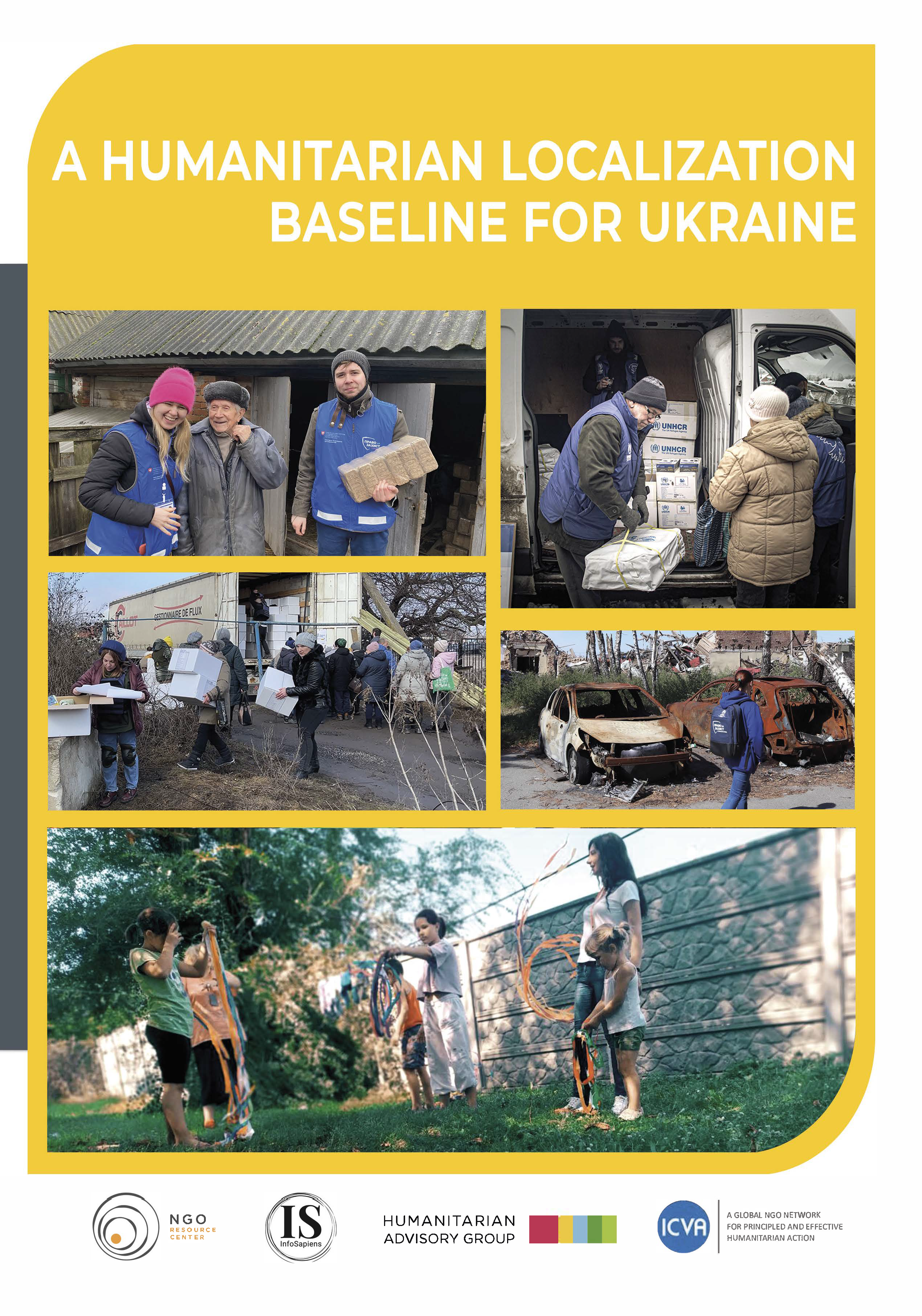-
Search -
Accessibility -
Members Login
ICVA
Hybrid (In person and Online Format), Meeting
English
Localization
Humanitarian
Yemen
The Humanitarian Networks and Partnerships Week (HNPW) is an annual humanitarian conference, one of the largest events of its kind, that provides a collaborative space for practitioners and experts from a large variety of humanitarian stakeholders including UN agencies, NGOs, the Red Cross and Red Crescent movement, academia, the military, private sector initiatives, and Member States.
About this Event
Join ICVA at this year’s Humanitarian Networks and Partnerships Week for a session on Localization. You can join, in person or online.
Date: Tuesday 25 April
Time: 09.00-10.30 CEST (90min)
Background Information
Localisation has been an explicit priority for the humanitarian sector since the 2016 World Humanitarian Summit and the associated Grand Bargain agreement. New approaches to partnerships, funding and coordination have been discussed, including how to provide effective and appropriate reinforcement to local and national actors in diverse and complex humanitarian contexts. Despite some willingness to prioritize localisation, the humanitarian system is still finding it challenging to make significant shifts to ensure local and national NGOs and civil society actors have sufficient power, resources and support to take a greater role in the leadership of humanitarian response.
Measuring progress is important to understand if and how change is occurring in relation to localisation. A practical approach to measuring progress on localisation was developed by Humanitarian Advisory Group (HAG) and the Pacific Island Association of NGOs (PIANGO) and piloted in 2018-19 in four countries in the Pacific region, with support from the Australian government.
The Localisation Measurement Framework and Tools developed and rolled-out during this process provides an approach to measure progress on localization in a holistic way, contextualized as needed.The framework looks at localisation under 7 interlinked priority areas: Partnerships, Leadership, Coordination and Complementarity, Participation (accountability), Policy Influence and Advocacy, Capacity, and Funding. This approach can be adapted for use in operational settings by NGOs and humanitarian partners. It can help to inform dialogue, set localisation priorities, develop local or national localisation roadmaps, measure progress at sector-level, and/or discuss with programme partners how localisation can be built-in to future partnership agreements.
In 2022, ICVA and HAG worked with a network of Yemeni CSOs, led by Tamdeen Youth Foundation, to introduce a baselining initiative around localised humanitarian action in Yemen. The findings of this baseline report suggest that the progress of localisation in the current humanitarian response in Yemen is lagging. However, there are some opportunities to capitalise on the meaningful participation of local actors in the leadership and decision-making process while strongly engaging in collective advocacy and policy efforts.
In 2023, ICVA and HAG are working with the NGO Resource Centre and Info Sapiens in Ukraine to roll out a similar baselining process. Initial results and findings will be shared during this session.
Agenda
09.00 – Welcome and introductions: Jeremy Wellard, ICVA
09.05 – Opening Remarks: Amanda Gorely, Permanent Representative of the Australian Mission to the UN
09.10 – Background and overview – Baselining Localization Approach: Eranda Wijewickrama, HAG
09.25 – Developing and Expanding the Approach in the Pacific Region: Siale Ilolahia, PIANGO (online)
09.40 – Extending the Approach – Measuring Progress in Yemen: Jameel Abdo, Tamdeen Youth Foundation (online)
09.55 – Where we are today – Measuring Progress in Ukraine: Anastasiya Shurenkova, Info Sapiens & Fred Larsson, NGO Resource Centre
10.10 – Q&A / Discussion
10.25 – Closing and Next Steps: Jeremy Wellard, ICVA
Speakers
Opening Remarks: Ms Amanda Gorely, Permanent Representative of the Australian Mission to the UN
Speakers:
Anastasiya Shurenkova, Research Expert, Info Sapiens, Ukraine
Fredric Larsson, Director, Ukraine NGO Resource Centre, Ukraine
Emeline Siale Ilolahia, Executive Director, Pacific Islands Association of Non Governmental Organisations (PIANGO), Fiji
Jameel Abdo, CEO, Tamdeen Youth Foundation, Yemen
Eranda Wijewickrama, Executive, Humanitarian Advisory Group, Australia

This report considers progress on localization in Yemen, measuring it across seven pillars: Partnerships, Funding, Capacity Strengthening, Coordination and Complementarity, Policy Influence, Leadership, and Participation.

The understanding of localization in the humanitarian response in Ukraine remains a key policy and practice concern for donors and humanitarian actors. While localization of the humanitarian response in Ukraine is frequently stressed as a priority, there have been only limited efforts to date to build evidence, evaluate impact, strengthen accountability, and develop strategic tools that can facilitate practical approaches to local leadership and quality humanitarian response.
This initiative attempts to establish ‘where we are’ in terms of the localization of humanitarian assistance in the response. Stakeholders can then establish the direction of travel to reach an objective, both collectively and independently. It further creates a baseline from which actors in Ukraine and elsewhere can continue to regularly assess humanitarian localization development by using the same methodology as with other responses across the globe.
Click on the below links to read the report in English and Ukrainian.